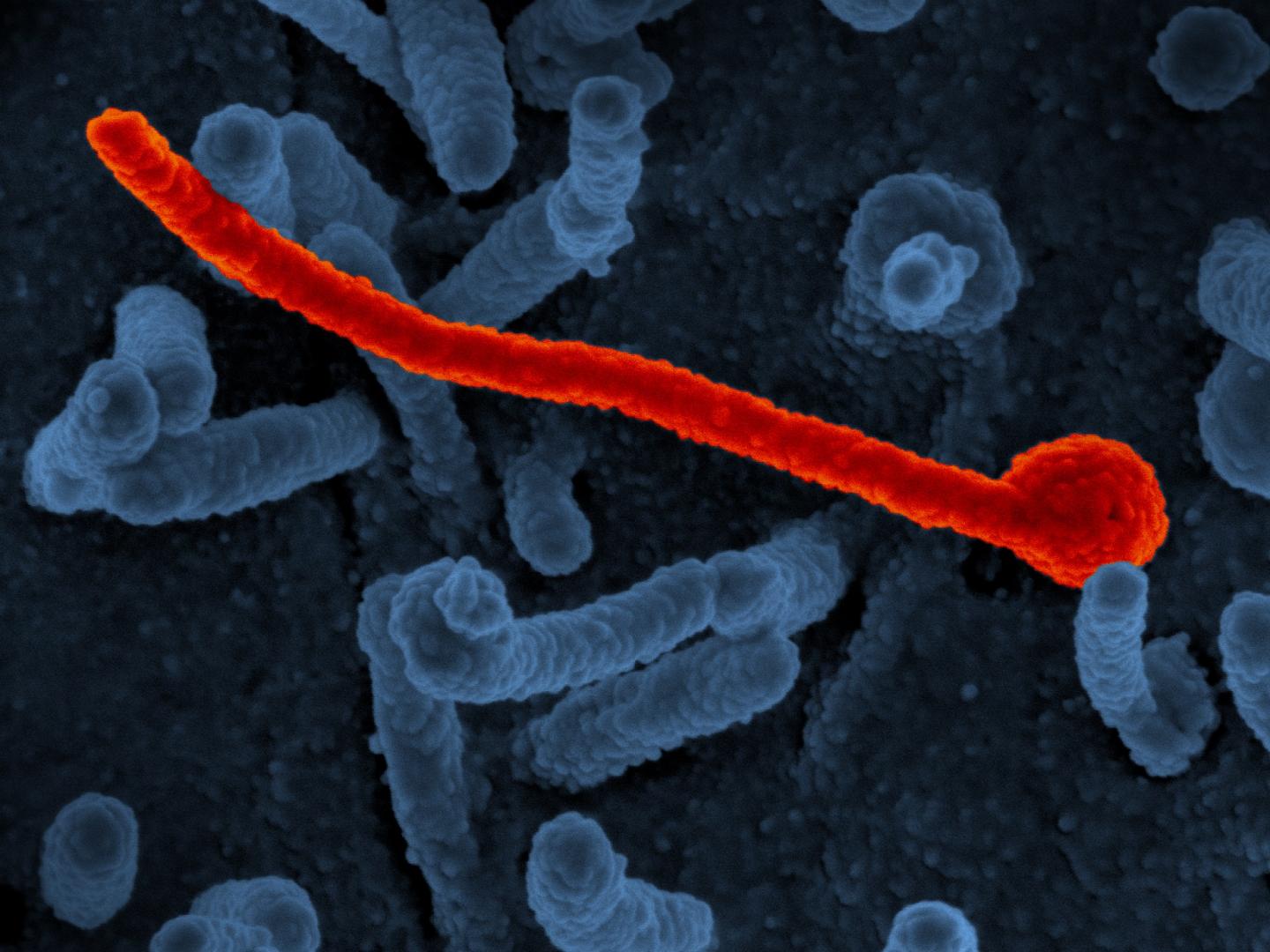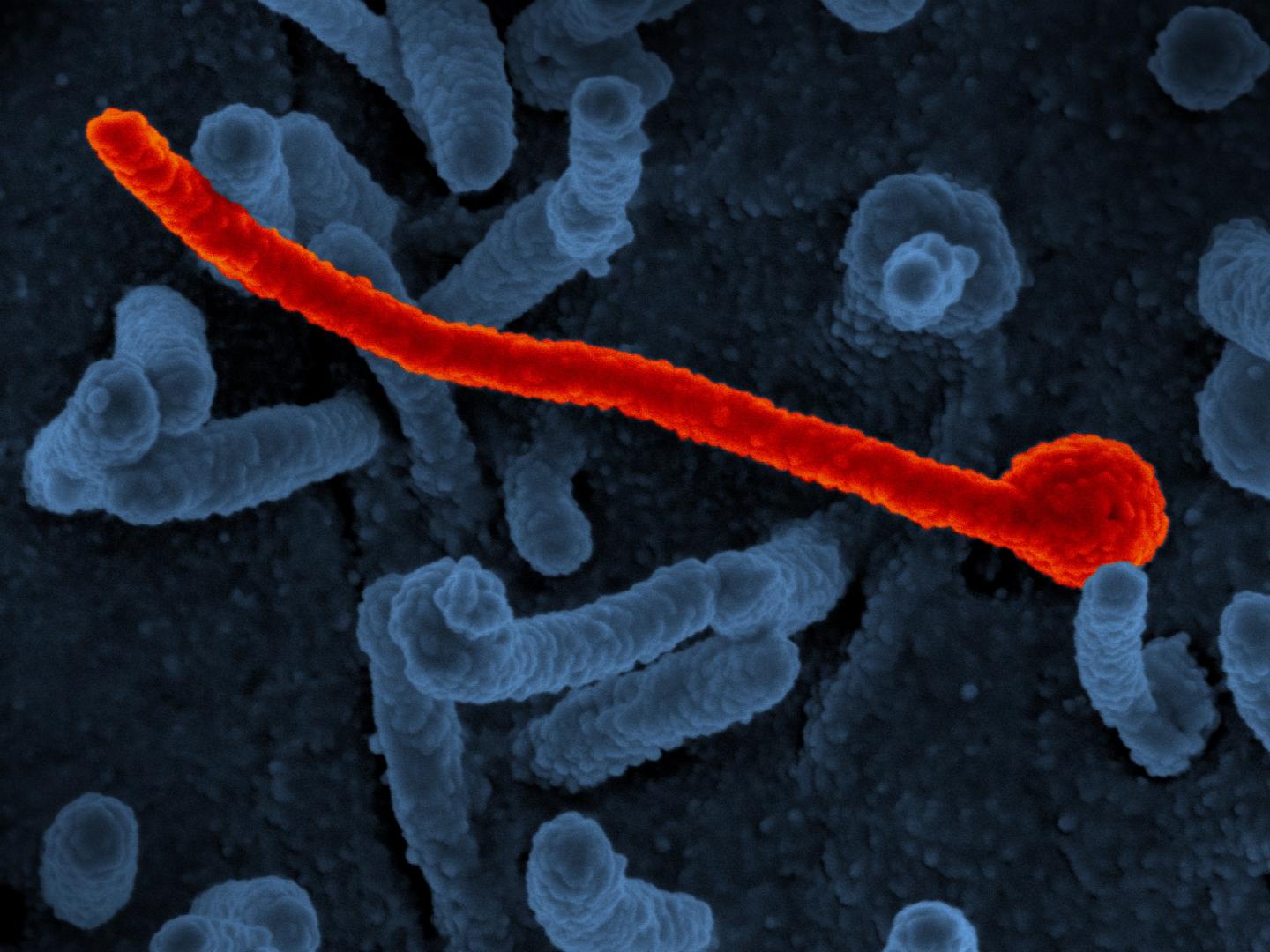
Credit: NIAID
WHAT:
Early during the recent Ebola epidemic in West Africa, scientists speculated that the genetic diversity of the circulating Makona strain of virus (EBOV-Makona) would result in more severe disease and more transmissibility than prior strains. However, using two different animal models, National Institutes of Health scientists have determined that certain mutations stabilized early during the epidemic and did not alter Ebola disease presentation or outcome. Their work, published in Cell Reports, offers further evidence to support previous findings from molecular sequencing that the diversity of EBOV-Makona did not significantly impact the course of disease.
EBOV-Makona swept through Liberia, Guinea and Sierra Leone from late 2013 to early 2016. Scientists from NIH's National Institute of Allergy and Infectious Diseases (NIAID) compared EBOV-Makona isolates from early in the outbreak–March 2014–to isolates circulating between five and nine months later, when certain mutations had emerged in the viral surface glycoprotein and elsewhere. They then infected mice and rhesus macaques with these various virus isolates to assess disease progression and viral shedding.
"We were unable to find any significant differences between early and late isolates lacking or carrying those mutations, suggesting that these mutations do not lead to alterations in the disease-causing ability in animal models," the authors write.
They also compared their results from the EBOV-Makona isolates to findings from macaques infected with the original EBOV-Mayinga strain from 1976. They determined that EBOV-Makona is less virulent than EBOV-Mayinga.
No convincing finding has been published showing that EBOV-Makona bears unusual biological features explaining increased pathogenicity or transmissibility, the authors write. The NIAID group suggests intensifying studies on non-viral factors that may explain increased case numbers and fatalities. Examples include population mobility, available health care, and virus persistence in survivors–all which may affect outbreak dynamics.
ARTICLE:
A Marzi et al. Recently identified mutations in the Ebola virus-Makona genome do not alter pathogenicity in animal models. Cell Reports DOI: 10.1016/j.celrep.2018.04.027 (2018).
WHO:
Heinz Feldmann, M.D., Ph.D., chief of NIAID's Laboratory of Virology, and Andrea Marzi, Ph.D., staff scientist, are available to comment on this study.
###
CONTACT:
To schedule interviews, please contact Ken Pekoc, (301) 402-1663, [email protected].
NIAID conducts and supports research–at NIH, throughout the United States, and worldwide–to study the causes of infectious and immune-mediated diseases, and to develop better means of preventing, diagnosing and treating these illnesses. News releases, fact sheets and other NIAID-related materials are available on the NIAID website.
About the National Institutes of Health (NIH): NIH, the nation's medical research agency, includes 27 Institutes and Centers and is a component of the U.S. Department of Health and Human Services. NIH is the primary federal agency conducting and supporting basic, clinical, and translational medical research, and is investigating the causes, treatments, and cures for both common and rare diseases. For more information about NIH and its programs, visit http://www.nih.gov.
NIH…Turning Discovery Into Health ®
Media Contact
Ken Pekoc
[email protected]
301-402-1663
@NIAIDNews
http://www.niaid.nih.gov
Related Journal Article
http://dx.doi.org/10.1016/j.celrep.2018.04.027





